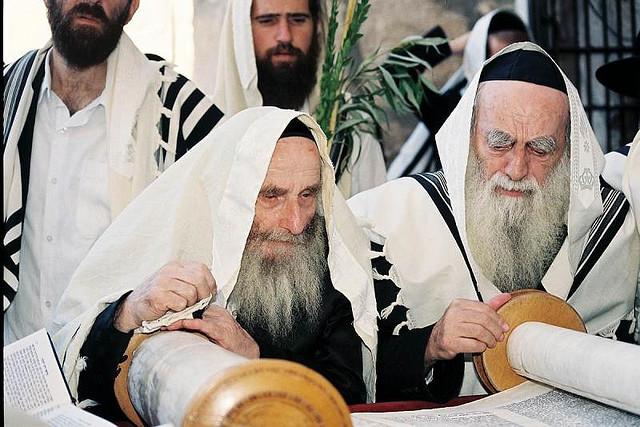10 Mar. Do honest people resent it when God forgives wrongdoers?
"'The older son was [working] in the field, and as he came closer to the house, he heard the sound of music and dancing. So he called to one of the servants and asked what all this meant.'"
"'The servant said, "Your [good-for-nothing] brother has come back, and your father killed the fat calf, because your brother came home safely."'"
"'The older son was angry and would not go in to the feast. So his father went out and begged him to come in. But the older son said to his father, "I have served you like a [hardworking] slave for many years and have always obeyed your commands. But you never gave me even a young goat to have at a feast with my [respectable] friends."'"
"'"But your other [lazy and disrespectful] son, who wasted all your money on prostitutes, comes home, and you kill the fat calf for him!"'"
"'The father said to him, "Son, you are always with me, and all that I have is [already] yours. We had to celebrate and be happy because your brother was dead, but now he is alive. He was lost, but now he is found."'"
(Luke 15:25-32)

Today's passage is the sequel to yesterday's story of the rebellious teenager who returned home to ask his father's forgiveness. These few verses tell us the response of the reliable, hardworking and honest older son who feels resentful because his father has rewarded his immoral and wasteful scoundrel of a brother with an expensive welcome-home party!
The meaning is clear - the decent, hardworking Jews of Jesus's day (the 'elder son' in the story) resented it when God forgave the dregs of Jewish society such as the prostitutes, tax-collectors and assorted sinners (portrayed as the rebellious 'younger brother' in the story).
And the resentment grew even stronger when God forgave and celebrated non-Jews who hadn't observed the Jewish religious rituals all their lives - like the 'good Samaritan' (see Luke 10:25-37) or the Gentile Syrian woman from Tyre (see Mark 7:24-30). Why should God welcome and forgive these people who hadn't spent a lifetime worshipping the one true God, and who weren't even members of God's 'chosen people' (see Genesis 35:9-15)?
The same attitude is displayed in the story/parable of Jonah, when he resents God's willingness to forgive the wicked and murderous Assyrian inhabitants of Nineveh (see Jonah 3:10-4:11).
And the same way of thinking is still shown today by many ultra-religious Jews in Israel, who cannot imagine that God could ever forgive and 'welcome home' the non-Jewish Palestinians who, in their eyes, are not part of God's 'chosen people'.
But before we point the finger at the hard-hearted ultra-conservative religious Jews in Israel today, let's consider our OWN attitudes when members of the LGBT community, homeless beggars, drug addicts, women of dubious reputation, or former prison inmates knock on our door or venture into our churches.
Do we 'respectable' worshippers look down on them as somehow inferior in God's sight? Or do we welcome them with open arms as brothers and sisters who are just as in need of God's love, mercy and forgiveness as we are?
The photo (by Eliel Joseph Shafler) shows ultra-Orthodox Haredi Jews at their morning prayers and Tora reading at the Western Wall in Jerusalem.
You can read more about the story of the 'Prodigal Son' @ https://www.thebiblejourney.org/…/the-parable-of-the-prodi…/
